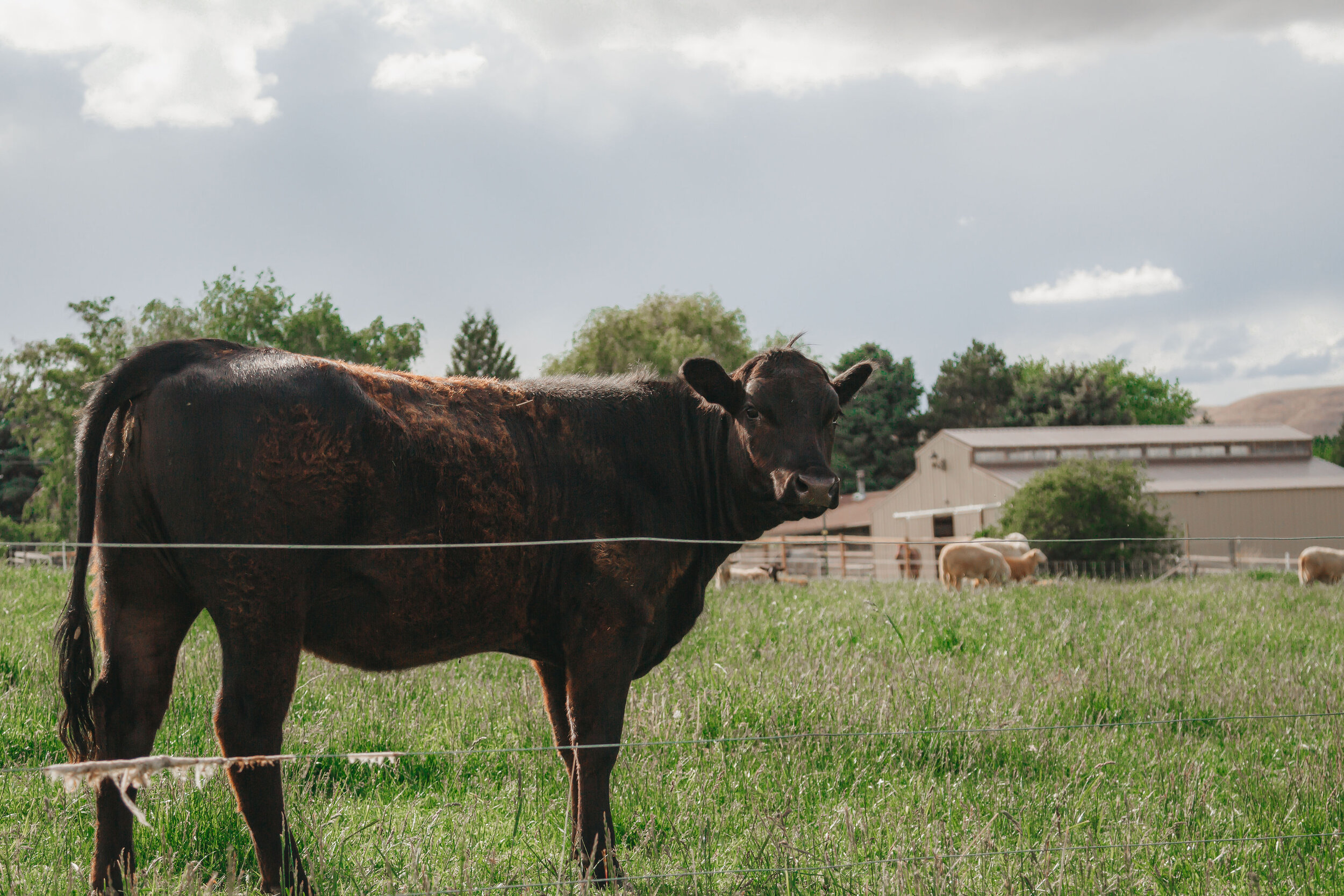Nutrition
You’ve heard the phrase, “You are what you eat.” This is true for animals too. The meat you buy in the grocery store comes from animals raised on grain. Chickens and pigs eat grain their entire lives, never seeing a blade of grass. Cattle eat some grass, but are usually introduced to grain at about 6 months of age and are “finished” on grain.
In the last 50 years or so, researchers have been studying meat coming from animals raised exclusively on grass. The differences in the nutritional makeup of grass-fed meat versus grain-fed meat (or partially grain-fed) are amazing and exciting.
We wanted to be a part of raising meat with this kind of nutritional quality, so we’ve been educating ourselves and changing our practices. We “manage” our grass and our cattle so our animals can gain and finish on grass, for the nutritional benefits, and still have excellent taste and tenderness.
Omega-3’s
Omega-3s are a type of fatty acid that is very good for you. More and more research is finding how much we actually need this essential fatty acid. You can get it in your diet from certain plants (like flax) and from grass-fed meat. Grass-fed meat has 75% more omega-3 than grain-fed.
Improve Heart Health
Omega-3’s reduce blood pressure, keep cholesterol levels low, and lower risk of heart attack. They keep cell membranes more elastic, making it easier for the heart to return to a resting state. They also stabilize irregular heartbeat, and reduce “stickiness of blood cells” (platelet aggregation) which can lead to a stroke.
Fight Auto Immune Diseases
(Rheumatoid Arthritis, Lupus, Reynaud’s disease, etc). Omega-3 fatty acids help arteries stay inflammation free, helping decrease the inflammation and pain of these diseases.
Anti-Cancer Agent
Research suggests that omega-3s help prevent breast and colon cancer. More research is still being done in this area.
Proper Brain Function
Omega-3s make your nerve cells more responsive to signals from serotonin, dopamine, and norepinephrine (mood stabilizing chemicals in your brain). Recent studies have shown that depressed patients have much lower levels of omega-3s than the rest of the population.
Fetal & Child Development
Omega-3s are a primary building block of babies’ brains during the 3rd trimester of pregnancy, and via breast milk. They help develop visual, cardiac, respiratory, and nervous systems. Omega-3s also lower the risk of postpartum depression.
CLA (Conjugated Linoleic Acid)
CLA is found in the fat of grass-fed ruminants (cattle & sheep). CLA is exponentially higher in meat from exclusively grass-fed animals than from those fed even small amounts of grain. Currently the USA has the least amount of CLA in its diet of any country in the world.
Anti-Cancer
CLAs lower the risk of cancer. They’ve even been shown to suppress the growth of cancer in animals.
Vitamin E
Vitamin E is a potent antioxidant that lowers the risk of heart disease and cancer. Grass-fed meat has 300% more Vitamin E than grain-fed.
Vitamin A
Linked to good vision, Vitamin A is also necessary for good bone development, prevents skin disorders, and lowers risk of cancer. Grass-fed meats have 400% more Vitamin A than grain-fed.
Some of this may seem too good to be true. However, you can look into this yourself at http://www.eatwild.com, and www.westonaprice.org, websites that explain in more detail the benefits of grass-fed meat. Or, feel free to ask us questions anytime.
References
1 Allan Nation, Farm Fresh (Ridgeland: Green Park, 2002) 184-5.
2 Reference library.”Omega-3 fatty acids”.Apr. 20, 05. www.wholehealthmd.com
3 Robert J. Hedaya, The Antidepressant Survival Program (New York: Crown, 2000) 85.
4 Nation 181-2. 5 “Omega-3 Fatty Acids and Pregnancy” May 22, 07. www.womenfitness.net





